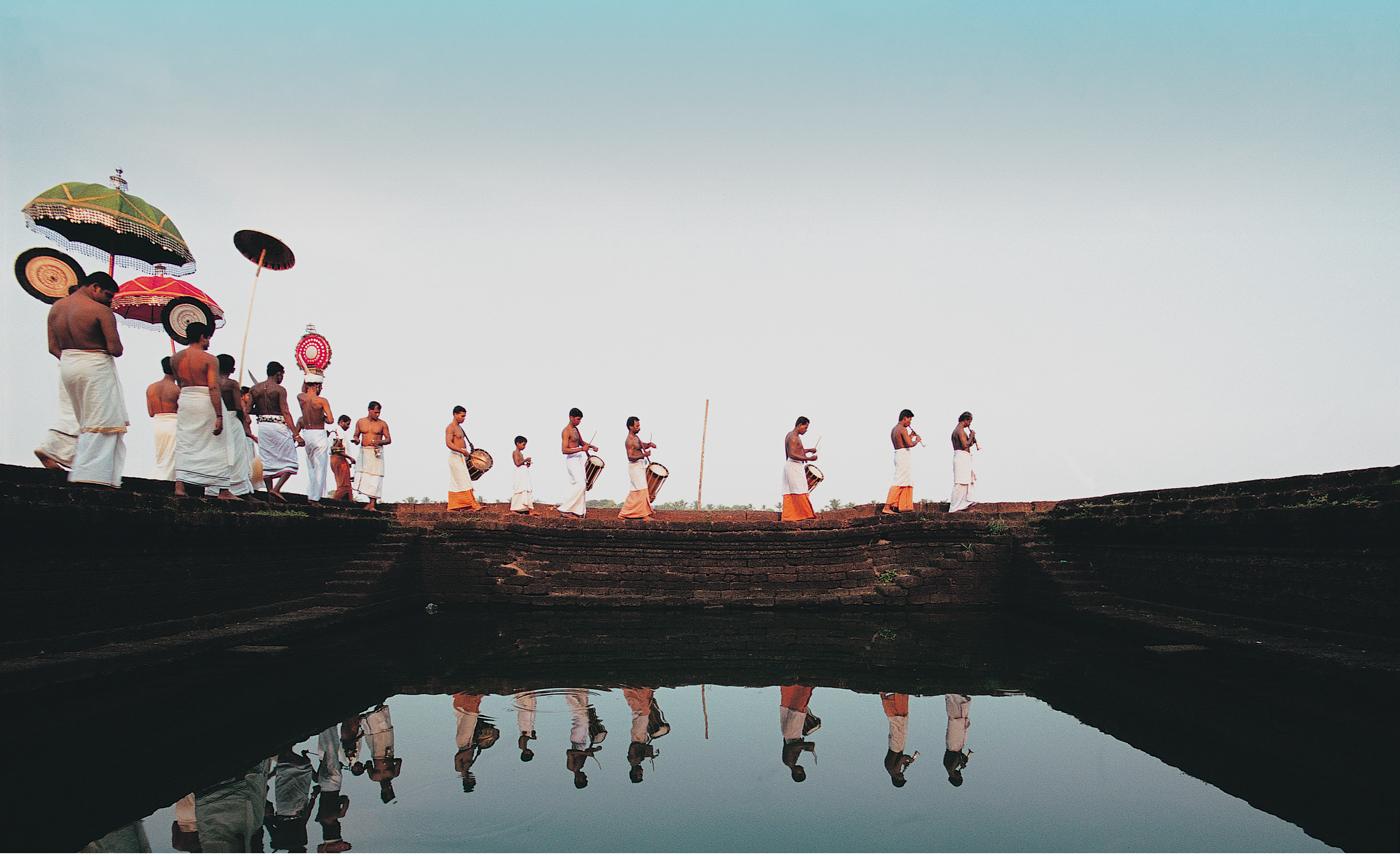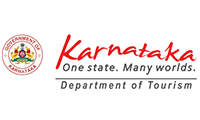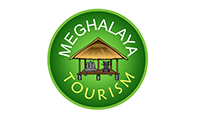

The Winners
Best Individually-run Homestay Best Community-run HomestayKerala Responsible Tourism Mission
Best Overall WinnerThe Winners
BEST INDIVIDUALLY-RUN HOMESTAY
GOLD: Ghoomakad, Rakkar village, Himachal Pradesh
Developed by a family in the village of Rakkar, near Dharamsala, Ghoomakad is a homestay in a traditional mud-house, with a 20+ seater co-working space that has reliable internet. The judges were impressed by the way in which organic farming, waste management and recycling have been turned into activities for guests; and by the survival camp experience, which lets guests connect with and learn about nature and themselves. Offering a rural experience with modern technology enables Ghoomakad to attract guests keen to bathe in a mountain stream, work online during the day and enjoy the cultural life and peace of the village at night.
SILVER: Chhotaram Prajapat Homestay, Salawas, Rajasthan
Described as “an initiative in reality”, they have “taken an initiative to offer the unaltered and the real-time panorama” of their civilisation in the village of Salawas, which is on the outskirts of Jodhpur. The Prajapatis are a community of weavers, and that remains the main income of the family; the homestay provides supplementary income. The 15 members of the family are the staff of the homestay, and guests eat from the family kitchen. The judges were impressed by the extent of the guests' engagement with the family and the opportunity to learn how to make a durrie from them.
BEST COMMUNITY-RUN HOMESTAY
GOLD: Friends of Orchha, Madhya Pradesh
As the name suggests, it’s a lovely and warm community near Orchha that offers a wonderful window to rural life. Friends of Orchha has broken caste barriers by inviting travellers to stay and experience Bundeli life with a community that is still discriminated against. The project was a response to four years of drought in the region and has improved the standard of living for the local families of small farmers, artisans and labourers. A registered non-profit formed in 2006, Friends of Orchha provided the loan capital for sanitation blocks in family compounds, which were repaid from tourism earnings; the families provided the labour.
SILVER: Demul, Spiti, Himachal Pradesh
JIt was started in 2004 with the help of the Spiti-based social enterprise, Ecosphere, in order to diversify livelihood opportunities in a community dependent on agriculture in an environment, where only one crop can be produced in a year (during the six months of winter, temperatures often drop below -30°C). Judges were impressed by the scale of the project. Of the 55 households in Demul, 48 have converted a room into a guest room. Using traditional village governance, homestays are allocated on a rotational basis, and each year, the money is distributed equally amongst all homestays, avoiding the impact of excessive competition.
SILVER: Baramati Agri Tourism, Maharashtra
The Baramati Agri Tourism project has a wide and direct impact, with 100% local involvement in over 350 agritourism centres in Maharashtra. Operating in a drought-prone area, where there are no conventional tourism draws, such as heritage monuments or natural attractions, the project relies entirely on the cultural assets and farming activities of this community of shepherds. About 80-85% of the profit is channelled directly to the villagers, who double as guides and travel operators, when they are not working in their farms, growing local produce organically, using harvested rainwater. All local sourcing is done within a 2km radius.
BEST HERITAGE PROPERTY
GOLD: The Bhuj House, Gujarat
In 2013, the Bhujwala family decided to restore The Bhuj House, their traditional Parsi home into a heritage homestay in the historic town of Bhuj in Kutch, Gujarat. One of only two Parsi houses remaining here, its future has been secured, and the Bhujwala family has protected the Agiary through a trust maintained by the family. This is a homestay designed to conserve the legacy of the Parsi community that was once an integral part of this city. A lot of effort went into the conservation of the building, and several local craftsmen and masons were encouraged to revive old techniques as part of the restoration process.
BEST WILDLIFE PROPERTY
GOLD: Fringe Ford, Kerala
Fringe Ford allowed a 520-acre cardamom and coffee plantation to return to the wild, creating a forest that is now a haven for several rare and endangered species of the region. A very low-impact wildlife lodge, the owners have made a conscious decision to have only five rooms on the estate, which are older structures that were upscaled. In the absence of fences, Fringe Ford merges seamlessly with the Wayanad and Tholpetty reserve forests, creating a borderless stretch of the Malabar rainforest. The only ac- tivities offered in this wilderness reserve are guided walks. The Travancore flying squirrel, Malabar giant squirrel, Nilgiri marten, lion-tailed macaque, brown palm civet and the Nilgiri langur can all be seen here along with elephants, gaur, tiger and leopard.
The regular presence of wildlife enthusiasts and field-work students (in subsidised programmes) in the forest has significantly reduced poaching, cannabis cultivation and illicit liquor manufacture, and encouraged data gathering. They have also been advocating for a new law on ‘Private land participation in preservation and conservation of forests’ and have recently presented a white paper on the subject to a Parliamentary Committee on environment and science. If and when the law comes into force, they have promised to be the first property to volunteer.
All the staff are from local villages, most of whom have been working here since it opened its doors to guests nearly12 years ago (or earlier). They don’t grow too many vegetables or fruits on the property to avoid potential conflicts with wildlife. Fresh fruit and vegetables are sourced locally, therefore, and spices and honey come from the local tribal co-operative—all of which eventually find pride of place on the table, transformed into traditional delicacies.
Fringe Ford has grid hydro-electricity and no air-conditioning. It gets its water from a perennial stream using high-school science and gravity. The grey water is cleaned through a reed bed, and brown water goes straight into septic soak pits. Devoid of sound and light pollution, it’s a great place to engage with nature in deep, interesting ways.
SILVER: SAI Sanctuary Trust, Karnataka
The SAI Sanctuary Trust (SST) is a non-profit located in the Western Ghats — the heart of the watershed area for the entire south Indian peninsula. From the initial purchase of 55 acres of private forested lands in 1991, the Sanctuary has grown to more than 300, protecting a biodiversity hotspot. They recently opened two eco-friendly cottages. With strong environmental credentials, the judges wanted to recognise this as an example of a wildlife sanctuary using tourism as supple- mentary income. Here, the flora and fauna come first. All travel is on foot in small groups, and trekking through the core area is done only once a day.
SILVER: Wildernest, Goa
With 16 cottages designed out of eco-friendly acacia wood, Wildernest strives to make living in the wilds an experience to cherish. They actively market both the winter and monsoon experiences. With foot trails, hides and machans, guided close encounters and talks, the judges recognised that it counters ‘nature deficit’ for all urban guests. It also offers an Ayurshala, local traditional food, cultural experiences and visits to traditional sanctuaries and holy forests conserved for generations by locals. A mere 10 out of the 700 acres of the private sanctuary is built-up, and supports 200 families, directly benefiting seven villages.
BEST BOUTIQUE PROPERTY
GOLD: Maachli, Maharashtra
Maachli is a family-run farmstay located in a preserved forest, where the owners have planted over a 100 habitat-friendly trees over the last 15 years. Guests here engage in the practical and cultural life of the village. 90 % of the staff are women from the area. Local sourcing for recipes cooked in clay vessels on woodfire also ensure that additional incomes are created for several villagers. Offering an opportunity to “tune man’s cord with nature”, the four sustainable yet comfortable cottages here are built to resemble local maachlis or huts, where farmers store their produce and rest awhile, if they can.
SILVER: Meena Bagh, Himachal Pradesh
Recently constructed in the Himachali style with wood-panelled and mud-plastered walls, Meena Bagh in Shimla celebrates local culture, music, food and architecture. The owners encourage writers and artists to stay and work here, offering deep discounts. The property harvests rainwater, recycles grey water and biodegradable waste, solar heats its hot water and uses LED lights throughout. The structure is also fully thermal- and sound-insulated. Only waste wood has been used for the panelling and the furniture, and local workers who built the property have subsequently been employed to run it.
BEST OUTDOOR OPERATOR
SILVER: Konkan Explorers, Goa
From sea kayaking to kayak surfing, they promote soft ecological impact nautical activities in Goa. Each experience is customised according to the physical and technical skills of guests, and the guides are put through intense technical and safety training, given the unpredictability of the sea and wind. The unsinkable kayaks they use are exceptional tools for delivering proximity to nature and to wind, tides and currents. Where outboard motors are used in boats, they operate with 40hp engines, the minimum power needed for safe navigation. All employees at Konkan Explorers are local, and 40% of them are women.
SILVER: Quest Expeditions, multiple destinations
Quest has five activity centres along the coast, reducing the local dependency on fishing by providing employment in water sports and hospitality. Promoting activities that use non-motorised power — paddle, pedal or wind — this award is for their sea kayaking ‘Paddle for the Environment’ experience. With core values of environmental and social responsibility, Quest employs eight boys from the Don Bosco Shelter Home for orphans and street kids as guides at its Rameshwaram centre, teaches local children kayaking, employs elderly gardeners, and gives lifeguard and snorkelling training to fishermen to help them find work in tourism.
BEST URBAN NEIGHBOURHOOD OPERATOR
GOLD: Reality Tours and Travels, Mumbai, Maharashtra
Notwithstanding sceptics, they have been encouraging locals and tourists to go out of their comfort zone and see Mumbai’s slums in a different light. In doing so, they have been breaking stereotypes and showing a side of Dharavi that few care to explore otherwise; 80% of their profits support development projects here. Start- ed in 2005 by Krishna Pujari, who arrived in the city as a young migrant himself, and Chris Way from the UK, the company was recognised as an overall winner of the Responsible Tourism Awards at WTM, London, in 2012. Since then, they have expanded to Rajasthan, Kerala and Delhi’s Sanjay Colony, also a slum.
SILVER: The Preserve Alleppey Society, Alappuzha, Kerala
The Preserve Alleppey initiative was started by the ladies wing of the Lions Club of Alleppey in 2000, and later registered as a Charitable Society. Educated women not formally employed found an opportunity to work creatively here. Nearly two decades later, it’s still using tourism to create local pride and to contribute to conserving the town. Members of its all-women team of 15 lead walking tours that include the Gujarati quarter, an old coir factory, an Anglican Church, markets and temples. Tours end with refreshments at one of their homes. The Society is now compiling a guide to Alleppey’s history, buildings and its local and migrant communities.
BEST CULTURAL IMMERSION OPERATOR
GOLD: The Folk Tales, multiple destinations
Established in 2013 as a “Responsible Rural Travel organization”, Folk Tales offers an immersive tour of Meghalaya, where guests spend time with weavers in their villages and weave their own local silk or cotton cloth on a handloom, before spending a day with tea pickers, working through the whole process. Then they live with indigenous tribes, learning about folktales, traditional ceremonies and honey gathering. Operating in 11 states, they have capped numbers at 500 guests annually, so that no village receives more than 50 guests per year. They have eliminated the use of plastic water bottles altogether.
SILVER: Culture Aangan, Maharashtra
Formed in 2010, this Mumbai-based outfit aims to build communities through tourism, providing education and using a self-help group model to develop homestays and revive art forms. The judges were impressed by the Sindhudurg tour that has helped revive Pinguli puppet craft. The tour offers an in-depth experience of Indian village life; enjoying folk theatre, setting up and watching Pinguli shadow puppets, visiting markets, mango and cashew orchards, and engaging with marginalised camel herders. The community has an effective veto over the arrival of visitors. Culture Aangan also operates in Rajasthan and Uttarakhand.
OUTSTANDING ACHIEVEMENT AWARD
Kerala Responsible Tourism Mission
Over the last decade, the Kerala Responsible Tourism Mission has created several wonderful cultural experiences for travellers, and in the process, created more opportuni- ties for local communities. They help guests from India and abroad see how Kerala truly lives.
The judges were pleased to receive an application from the Kerala Responsible Tourism Mission in the Best Cultural Immersion Tour Operator category. They wanted to recognise this inspiring initiative, which over the last 10 years has piloted a range of approaches for securing additional livelihoods for local communities and enhancing guest experience. The Village Life Experiences provide a cultural immersion for guests who benefit from them, and engage villagers who create and share those experiences.
These interactions are based on mutual respect and create shared memories, even as they provide an additional income, an incentive for the villagers to maintain their traditional practices. Forty farmers have restarted paddy cultivation, and local arts have been granted a new lease of life. Some 1,100 families are benefiting from tourism to Kumarakom alone, where traditional skills such as coir-making, weaving, screwpine leaf crafts and bronze vessel making have been revived.
A rare example of intervention by public stakeholders to encourage ethical tourism at the grassroot-level through better trade and community linkages, greater awareness, cultural conservation and capacity building, Kerala Responsible Tourism Mission also relies on the local panchayat system to promote and implement responsible practices among private stakeholders.
This is an exemplary initiative, which has been recognised internationally on several occasions. Now, moving beyond the development phase, Village Life Experiences will in 2018 be extended to 20 new villages in all 14 districts of Kerala. Rarely are initiatives piloted, tested, assessed and fine-tuned, before being rolled out at scale. This is an outstanding achievement and one that should be widely replicated.
OVERALL WINNER: Fringe Ford, Kerala
Fringe Ford allowed a 520-acre cardamom and coffee plantation to return to the wild, creating a forest that is now a haven for several rare and endangered species of the region. A very low-impact wildlife lodge, the owners have made a conscious decision to have only five rooms on the estate, which are older structures that were upscaled. In the absence of fences, Fringe Ford merges seamlessly with the Wayanad and Tholpetty reserve forests, creating a borderless stretch of the Malabar rainforest. The only ac- tivities offered in this wilderness reserve are guided walks. The Travancore flying squirrel, Malabar giant squirrel, Nilgiri marten, lion-tailed macaque, brown palm civet and the Nilgiri langur can all be seen here along with elephants, gaur, tiger and leopard. The regular presence of wildlife enthusiasts and field-work students (in subsidised programmes) in the forest has significantly reduced poaching, cannabis cultivation and illicit liquor manufacture, and encouraged data gathering. They have also been advocating for a new law on ‘Private land participation in preservation and conservation of forests’ and have recently presented a white paper on the subject to a Parliamentary Committee on environment and science. If and when the law comes into force, they have promised to be the first property to volunteer. All the staff are from local villages, most of whom have been working here since it opened its doors to guests nearly12 years ago (or earlier). They don’t grow too many vegetables or fruits on the property to avoid potential conflicts with wildlife. Fresh fruit and vegetables are sourced locally, therefore, and spices and honey come from the local tribal co-operative—all of which eventually find pride of place on the table, transformed into traditional delicacies. Fringe Ford has grid hydro-electricity and no air-conditioning. It gets its water from a perennial stream using high-school science and gravity. The grey water is cleaned through a reed bed, and brown water goes straight into septic soak pits. Devoid of sound and light pollution, it’s a great place to engage with nature in deep, interesting ways.







